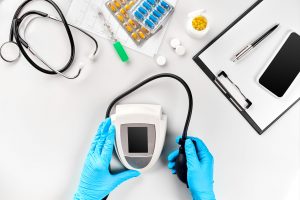
Snapshot
The Australian framework for regulating therapeutic goods is a complex space, which requires careful navigation and application. This article looks at recent developments in this field including:
- current reforms to the regulatory framework for advertising therapeutic goods, including the new Therapeutic Goods Advertising Code 2018 (2018 Code) which are now underway. Given the broad coverage of this framework, the reforms will be relevant for many clients in the health space, particularly those involved in the promotion of therapeutic goods; and
- recent commentary from the Therapeutic Goods Administration (TGA) about products which have been, or are being, unnecessarily registered as Class 1 medical devices. It is likely that this position of the TGA will have potential ramifications for both current and future sponsors of low risk medical devices.
Therapeutic goods advertising reforms
Following consultation earlier this year, the 2018 Code was made in June 2018, and now comes into effect on 1 January 2019 (having initially been scheduled to come into effect on 1 July 2018).
The 2018 Code will operate alongside other changes to the Therapeutic Goods Act 1989 (Cth) (TG Act) that came into effect on 6 March 2018. Among other things, these changes included a new definition of “advertise” in relation to therapeutic goods. The terms “advertise” or “advertisement” have always been given a broad meaning under the TG Act, and the new definition maintains this approach by clarifying that “advertising” can extend to the packaging and labelling of, and information supplied with, therapeutic goods.
The 2018 Code includes a number of departures from the current Therapeutic Goods Advertising Code 2015 (2015 Code). Two particular changes that will be welcomed by many stakeholders clarify the information that must be included in certain advertisements for therapeutic goods. They include:
- specific requirements that were previously expressed to apply to “direct marketing” or “internet marketing” are now expressed to apply to “advertisements for goods that are not available for physical examination before purchase” (section 12 of the 2018 Code). We expect this is intended to clarify that these specific provisions will apply where therapeutic goods are marketed and sold online, or are subject to other forms of direct marketing (as opposed to online advertising more generally); and
- additional clarity regarding the information that must be contained in advertisements for medical devices (as opposed to medicines), contained in sections 11 and 12 of the 2018 Code.
We expect these and other new provisions will be further clarified in supporting guidance that is currently being prepared by the TGA, with consultation on the guidelines expected to commence shortly.
Review of Class 1 medical devices
We were also interested to read the TGA’s publication last month regarding the future regulation of low risk products, which follows the Commonwealth Government’s acceptance of certain recommendations of the Expert Review of Medicines and Medical Devices Regulation, and relevant consultation conducted by the TGA last year.
Of particular interest were the TGA’s comments regarding Class 1 medical devices. Class 1 medical devices are those classified as lowest risk, and are generally not assessed by the TGA prior to their registration as therapeutic goods. The TGA has advised that, in its view, a number of products currently registered as Class 1 medical devices do not require registration, and it will be reviewing all current Class 1 registrations to remove products that are registered unnecessarily.
Assessing whether a product requires registration as a medical device is a complex exercise, and may involve some degree of uncertainty. Some suppliers have preferred to take a conservative approach, particularly in light of the significant penalties for supplying unregistered medical devices.
If you are looking to register a low-risk medical device, we suggest you take this recent development into account.
If you would like further information or have any questions, please contact us.
This is for general information only and formal legal advice should be sought on matters of interest arising from this article.

